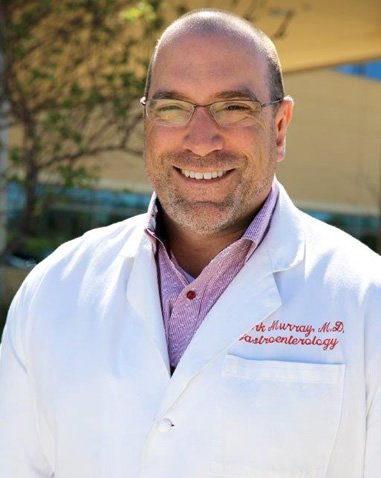DYSPHAGIA
Dysphagia (difficulty swallowing) is a condition where food and/or liquids have difficulty passing from the mouth to the stomach. There are numerous causes for dysphagia and, in general, there are 3 recognized types of dysphagia:
- Oral dysphagia (the problem is in the mouth)
- Pharyngeal dysphagia (the problem is in the throat)
- Esophageal dysphagia (the problem is in the esophagus)

Due to the numerous of causes and differing locations where dysphagia can occur, specific evaluations and treatment options vary. Listed below are some of the more common causes of dysphagia along with associated symptoms, diagnostic tests, and potential treatment options.
Of note, it is important to distinguish dysphagia from both odynophagia and globus. Although these 2 conditions may also be present in conjunction with dysphagia, they are completely different issues.
- Odynophagia is painful swallowing. It is frequently an indication of inflammation (i.e. esophagitis from poorly controlled GERD), but can also be caused by esophageal motility problems such as esophageal spasm.
- Globus is a sensation of fullness in the throat. It is a relatively nonspecific symptom that can have a wide variety of underlying causes. Some of these include GERD, Seasonal Allergies, Postnasal Drip and Anxiety Disorder
CAUSES
- Neurologic Disorders such as ALS (Lou Gehrig’s Disease), Multiple Sclerosis, Myasthenia Gravis, Parkinson’s Disease and Stroke
- Cancers of the mouth, throat and esophagus
- Radiation treatments for malignancies such as Lung Cancer and Breast Cancer which can inadvertently damage the esophagus
- Esophageal strictures from longstanding GERD
- Disorders of the esophagus such as Eosinophilic Esophagitis, Achalasia and Esophageal Spasm
Infections of the mouth, throat or esophagus - Hiatal Hernias
- Autoimmune Diseases such as Scleroderma
- Xerostomia (dry mouth due to lack of saliva production)
SYMPTOMS
- Sensation of food getting stuck in the throat, chest or upper abdomen (just below the breastbone)
- Coughing, choking or gagging when eating or drinking
- Foods, liquids or saliva backing up into the mouth or throat when trying to eat or drink
- Regurgitating or vomiting recently ingested food because it will not pass through the esophagus
- Having to cut food into smaller pieces to eat it
- Avoiding certain foods (i.e. meats and breads) due to difficulty swallowing them
- Recurrent pneumonias due to food and liquids being inhaled into the lungs
- Dehydration, malnutrition and weight loss due to poor oral intake
TESTING
- Upper Endoscopy – This involves the use of a small flexible camera to directly visualize and evaluate the esophagus
- Manometry – This test measures the contractility and coordination of the esophageal muscles
Barium Swallow – A specialized x-ray in which barium is swallowed and allows the physician to evaluate the contour of the esophagus - Swallow Study – This test is typically performed by a Speech Therapist. They will have the patient swallow different consistencies of food and liquid to see which ones cause difficulty.
TREATMENT
There are a wide variety of options available for the treatment of dysphagia and the type of treatment is typically dictated by the underlying cause. Some potential treatments include:
- Swallowing therapy under the guidance of a Speech Therapist
- Dilation of esophageal strictures
- Treatment of underlying infections
- Dietary modification
- Surgical intervention
NORTHEAST TARRANT GASTROENTEROLOGY ASSOCIATES
If you have any of the signs, symptoms or risk factors listed above, please feel free to schedule an appointment with us to discuss your concerns and schedule further testing. All our physicians are board-certified in gastroenterology and perform dysphagia evaluations on a regular basis. We look forward to seeing you.
PHYSICIANS
Northeast Tarrant Gastroenterology Associates is comprised of Dr. Mark Murray, Dr. Eric Hill and Dr. Bryan Ong. They are all board-certified gastroenterologists who are also members of Digestive Health Associates of Texas (DHAT). They have two convenient office locations in Northeast Tarrant County (North Richland Hills and Ft. Worth) to serve your gastroenterology needs. They offer specialized services supporting the full spectrum of digestive healthcare, including screening colonoscopy.
Dr. Mark Murray earned his undergraduate degree at Texas A&M University and his M.D. degree at the University of Texas Health Science Center at Houston. He completed his internal medicine residency training at the University of Arkansas for Medical Sciences. He received his gastroenterology fellowship training at St. Louis University.
Dr. Eric Hill earned his undergraduate degree at Baylor University and his M.D. degree at the University of Oklahoma. He completed his internal medicine residency training at Vanderbilt University. He received his gastroenterology fellowship training at the University of South Florida.
CALL TODAY
817-284-2693

 Meet Dr. Mark Murray
Meet Dr. Mark Murray Meet Dr. Eric M. Hill
Meet Dr. Eric M. Hill Meet Dr. kevin Ho
Meet Dr. kevin Ho